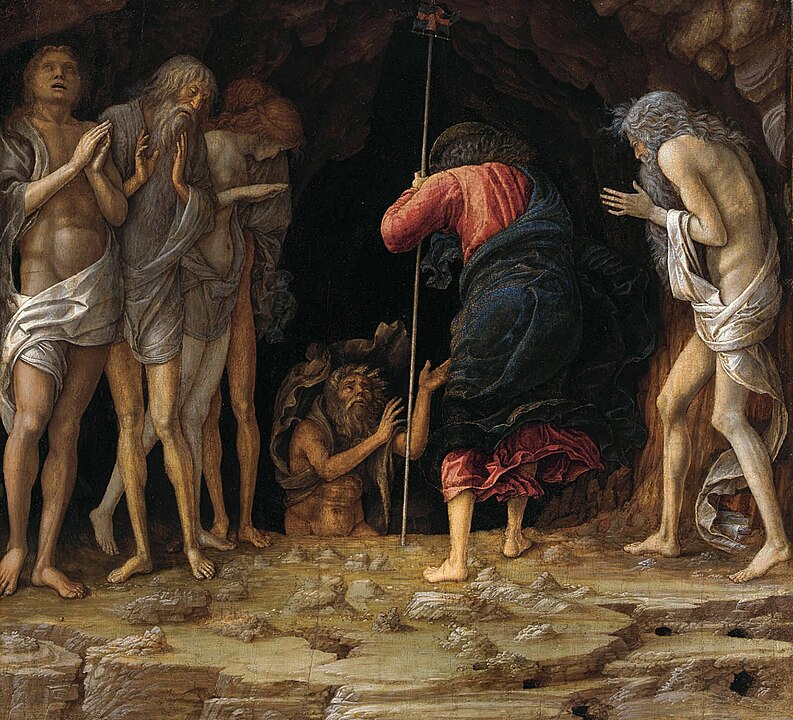"When you see these things happening: know that he is near, at the very gates." (Mark 13:29)
Which gates is Jesus talking of in Sunday’s Gospel? The gates of heaven he is waiting to pass through at his Second Coming or the gates of our world he wants to enter? St Matthew records this same saying of Jesus (24:33) and also his promise that "the gates of Hades will not withstand" the Church (16:18).
Hades, where the dead wait for the last day, is not hell, the permanent home of those who reject God. At his death, Jesus, in his soul, descended among the souls in Hades and on the last day, in his risen body, he will reunite each soul with its body, whether the soul is in heaven or in hell.
"Waiting at gates" is a military reference for an army about to attack, and it seems Jesus applies this image to his future conquest of Hades when he will raise all our bodies at the end of time.
In the second reading there is another military metaphor for this moment: Jesus is "waiting until his enemies are made into a footstool for him" (Hebrews 10:13). Joshua has ordered his victorious army to "put your feet upon the necks of these kings" (Joshua 10:24) and Jesus will fulfil this by stamping down the devil, as God prophesied to Satan: "he shall bruise your head and you shall bruise his heel" (3:15).
The devil bruised Jesus’s feet when they were nailed to the Cross, but now his head becomes Christ’s footstool. When this progressive crushing of Lucifer is complete, Jesus will come again and "send the angels to gather his chosen from the four winds" (Mark 13:27).
Yet Jesus admits that "as for that day or hour, nobody knows it, neither the angels of heaven, nor the Son; no one but the Father" (Mark 13:32). Jesus’s human knowledge consisted of what he learned humanly, what he learned by inspiration and what he knew in a mysterious way that the Church terms the "beatific vision", the kind of knowledge the saints have in heaven, when we know God as he knows us (1 Cor 13:12).
This last, mysterious kind of knowing is unlike the concepts we experience now and it was only in this sense that Jesus knew the "day and hour". In other words, Jesus had no normal concept of that moment, neither from what he could learn nor from the inspirations he received for his mission, so it was natural for him to say he did not "know" it.
If Jesus could not work out the time of his Second Coming from his experience of life, and he did not need to know it for his mission, why do we sometimes spend time trying to work out when it will be, thinking that knowing it is necessary for our mission?
Let’s commit ourselves to living each minute faithfully, with our full attention in the present, not worrying about the future, only yearning to embrace the Risen Christ in our resurrected bodies.
<a href="https://catholicherald.co.uk/the-harrowing-of-hell-according-to-tolkien/"><mark style="background-color:rgba(0, 0, 0, 0)" class="has-inline-color has-vivid-cyan-blue-color"><strong><em>RELATED: Between the Cross and Resurrection: The Harrowing of Hell, according to J.R.R. Tolkien</em></strong></mark></a>
<em>Photo: ‘Christ’s Descent into Limbo’ by Andrea Mantegna, c. 1470 (Creative Commons / Wikipedia).</em>



